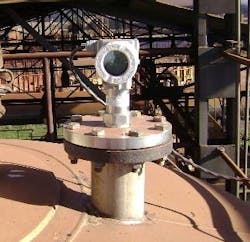Brazilian Ethanol Provides Opportunity for Automation Suppliers
Nov. 12, 2007
3 min read
Sertãozinho, Brazil, was the stage for two of the largest world ethanol exhibitions Sept. 18-21. Fenasucro and Agrocana had 420 exhibitors and attracted 25,000 visitors. The city is recognized as one of the most important in the ethanol industry. Brazil has 10 percent of the sugarcane cultivation in the world. São Paulo State is responsible for 45 percent of Brazilian sugarcane cultivation. And the Ribeirão Preto region, including Sertãozinho, registers 80 percent of the sugarcane production of São Paulo State. Thirty percent of the 340 million tons of sugarcane produced in Brazil annually come from Ribeirão Preto and Sertãozinho. According to São Paulo State Governor, José Serra, Brazil will continue producing the cheapest ethanol and sugar in the world. “Now, there are 7 millions hectares of sugarcane, and everybody knows that it has about 90 millions additional hectares of soil that can easily be cultivated, of which 25 million are suitable for sugarcane cultivation. We only need to invest in technology.” It is exactly this that the sugar and ethanol plants in the region are doing, believing in automation as the path to increased production and productivity. Automation solutions The Brazilian company Smar Equipamentos Ind. Ltda. intends to be a leader in this market, in part because its location, in Sertãozinho, provides easy access to the plants. And during Fenasucro and Agrocana, Smar provided one of the highlights in the automation, instrumentation and control area. Among several solutions, the company showed the control system System302-7 and the RD400 release, a level transmitter based on guided-wave technology, which is widely used in sugar and ethanol mills. “The ethanol sector is in great growth. In new enterprises, advanced automation is being installed, but there is also a great market of existent plants that are in retrofitting and technological updating,” said Marcus Vinicius Ribeiro, Smar sugar and ethanol manager. According to him, the company is growing its projects in sugar and ethanol every year, and that should still continue for some time. The future of the Amazonian forest is not threatened by ethanol. In an article published in the “Washington Post” last March, the Brazilian President Luiz Inácio Lula da Silva affirmed: “The ethanol is not a direct threat for the tropical forests, because the Amazonian soil is extremely inadequate for sugarcane cultivation.” The Brazilian ethanol is a success in the world. The industrial automation can also be. About the authorSílvia Pereira, [email protected], is a freelance journalist based in Brazil.
About the Author
Sign up for our eNewsletters
Get the latest news and updates

Leaders relevant to this article:
